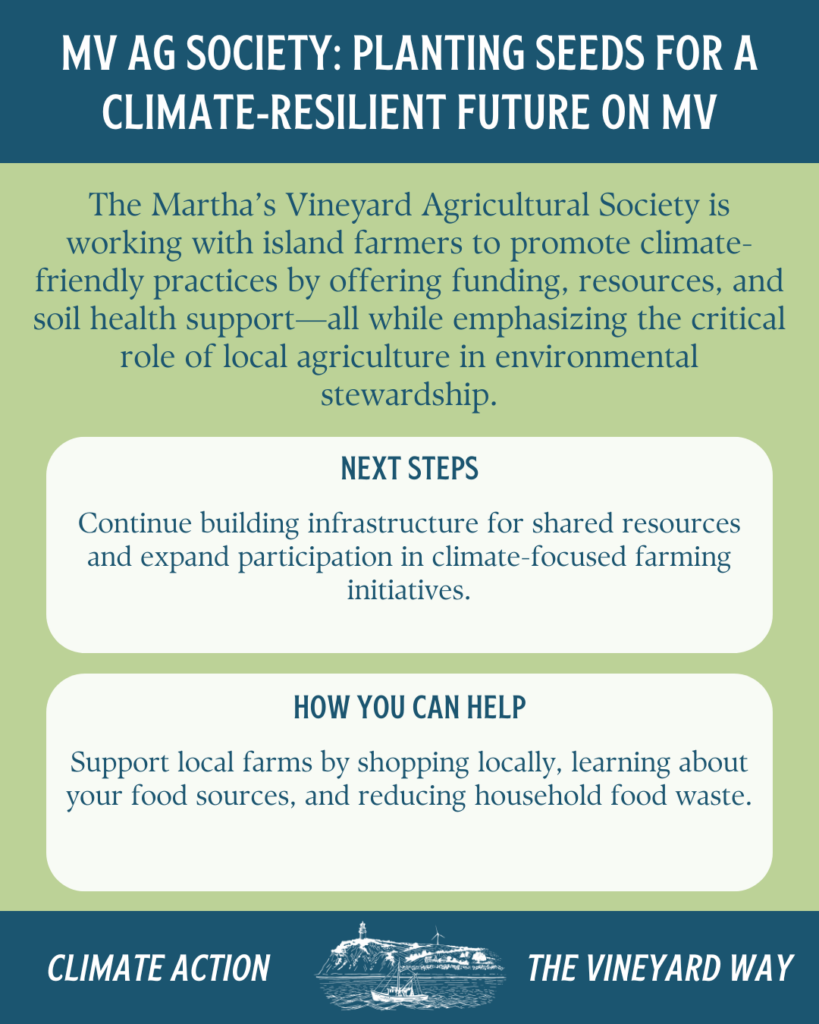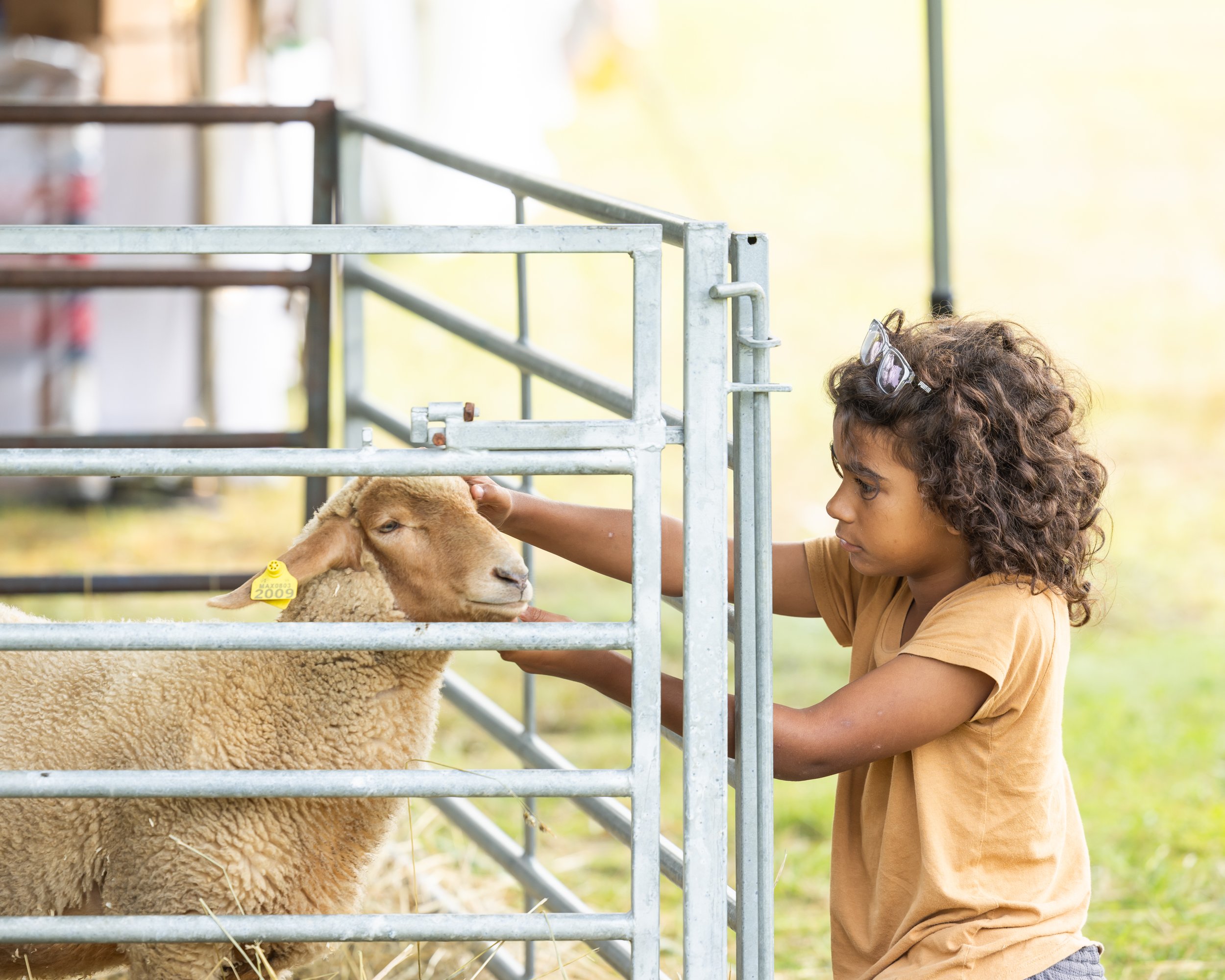The Martha’s Vineyard Agricultural Society, led by Executive Director Lauren Lynch, is taking meaningful steps to support climate-friendly farming across the island. Over the past year, they’ve developed a set of recommended practices and created a dedicated fund to help local farms implement them. By engaging directly with over 14 island farms, they’ve gathered valuable insight on how island agriculture can respond to changing weather patterns, from improving soil health to reducing plastic use and exploring alternative energy.
Farmers are on the front lines of environmental stewardship, and the MV Ag Society recognizes the need for both innovative solutions and practical support. That includes bulk access to sustainable materials, shared labor and equipment resources, and even free soil health testing to help farmers make informed improvements. While implementing changes during peak farming season is challenging, the commitment to long-term climate resilience remains strong.
You can help support this mission by shopping locally, learning where your food comes from, and reducing your personal waste through composting and mindful consumption. Tools like the Vineyard farm map and farm passport make it easier than ever to engage with our local agricultural community. Together, we can cultivate a healthier, more sustainable future for our island.
This work directly supports Climate Action Plan (CAP) Food Security Goal #1: By 2040, food grown on the Island is harvested and produced in a way that strengthens biodiversity and makes food more abundant over time, and the majority of food consumed on the Island is grown in the Northeastern US; Objective #2: By 2030, all Island farms are implementing a standard slate of climate friendly farming practices (i.e., till less, utilize cover crops, increased diversity, native plantings, reduce fossil fuel usage, reduce/eliminate synthetic fertilizers, pesticides and herbicides).






